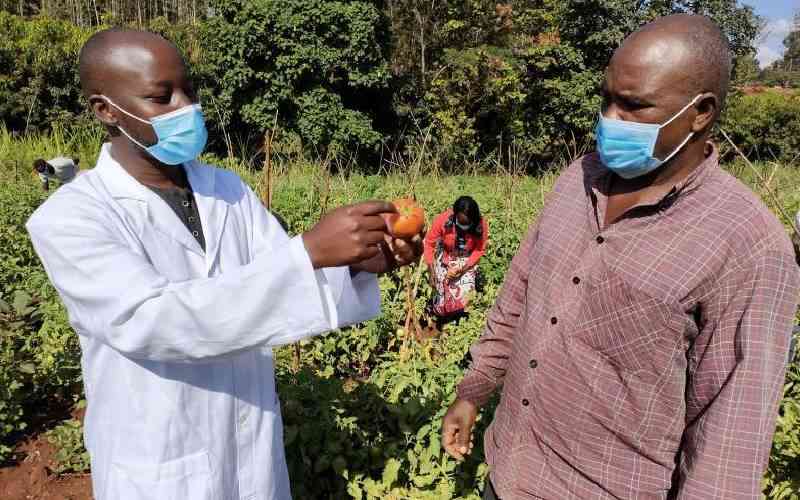A farmer is being taken through training on post-harvest handling of tomatoes on September 29, 2021. The training was meant to help them prevent losses. [Muriithi Mugo, Standard]
×
The Standard e-Paper
Home To Bold Columnists

Providing farmers with seedlings and helping them construct greenhouses are among the measures the county government of Kirinyaga is taking to increase the production of tomatoes.
Governor Anne Waiguru said they want to get local farmers ready to supply the produce to a tomato processing factory at the upcoming Sagana Agro-Industrial City.